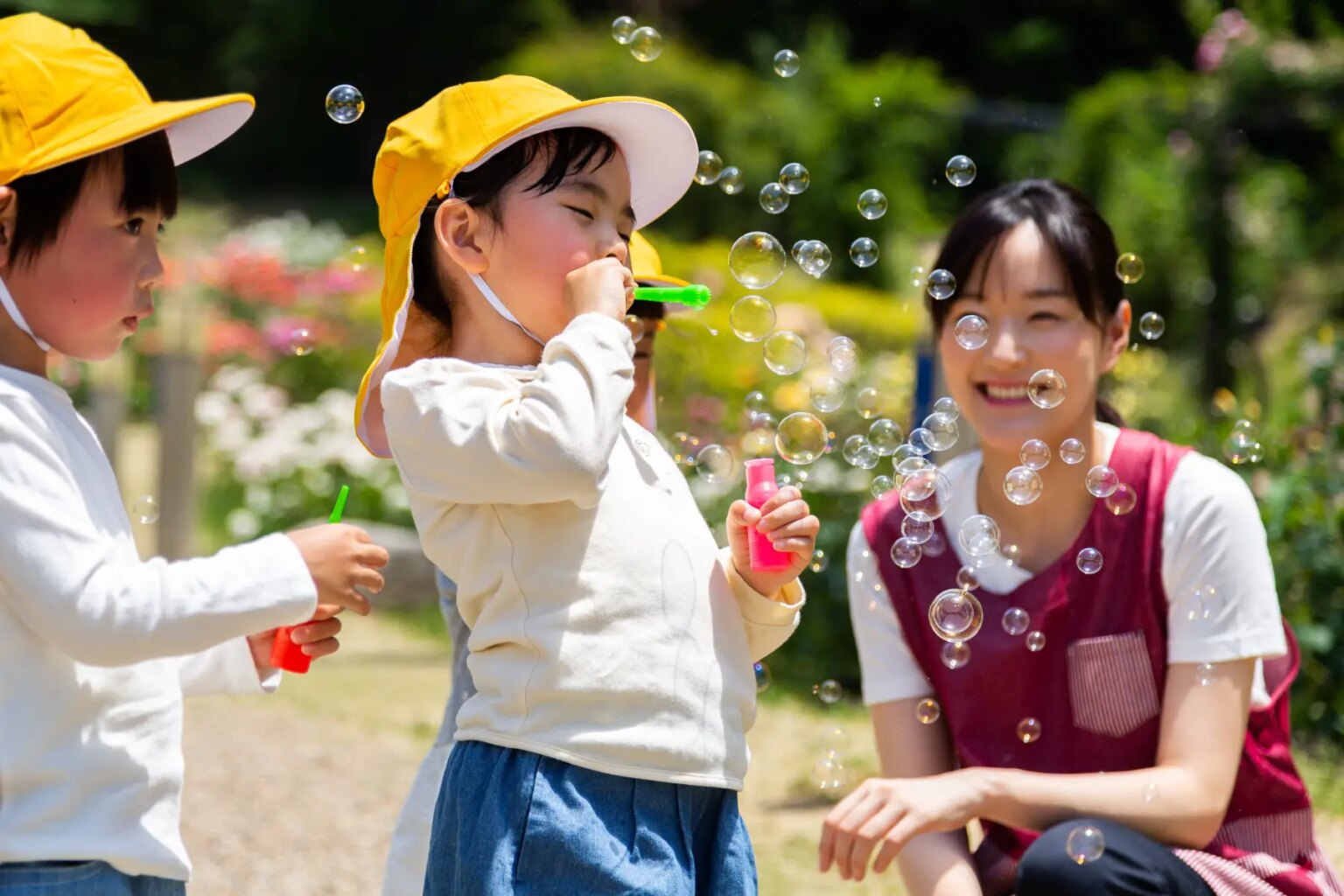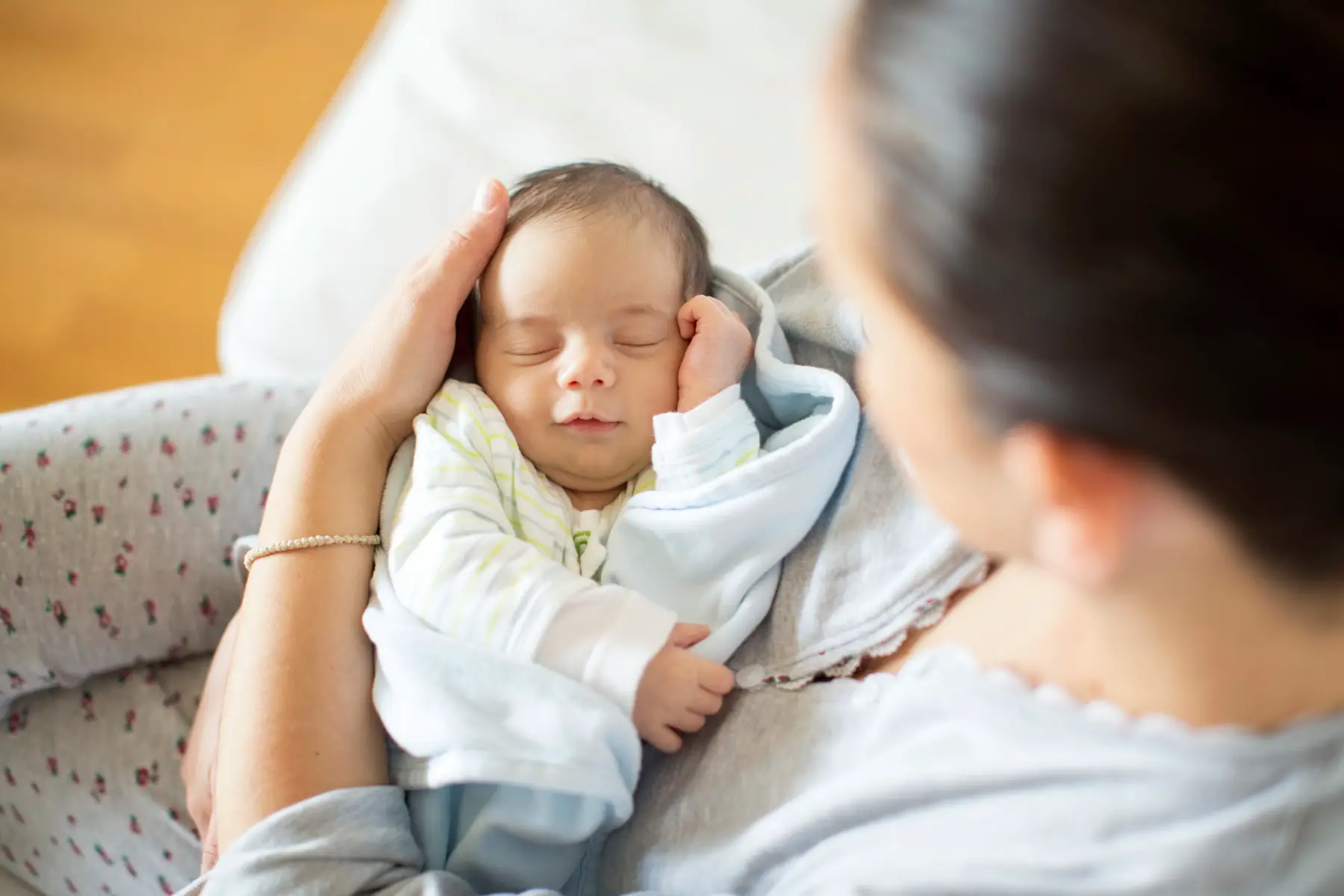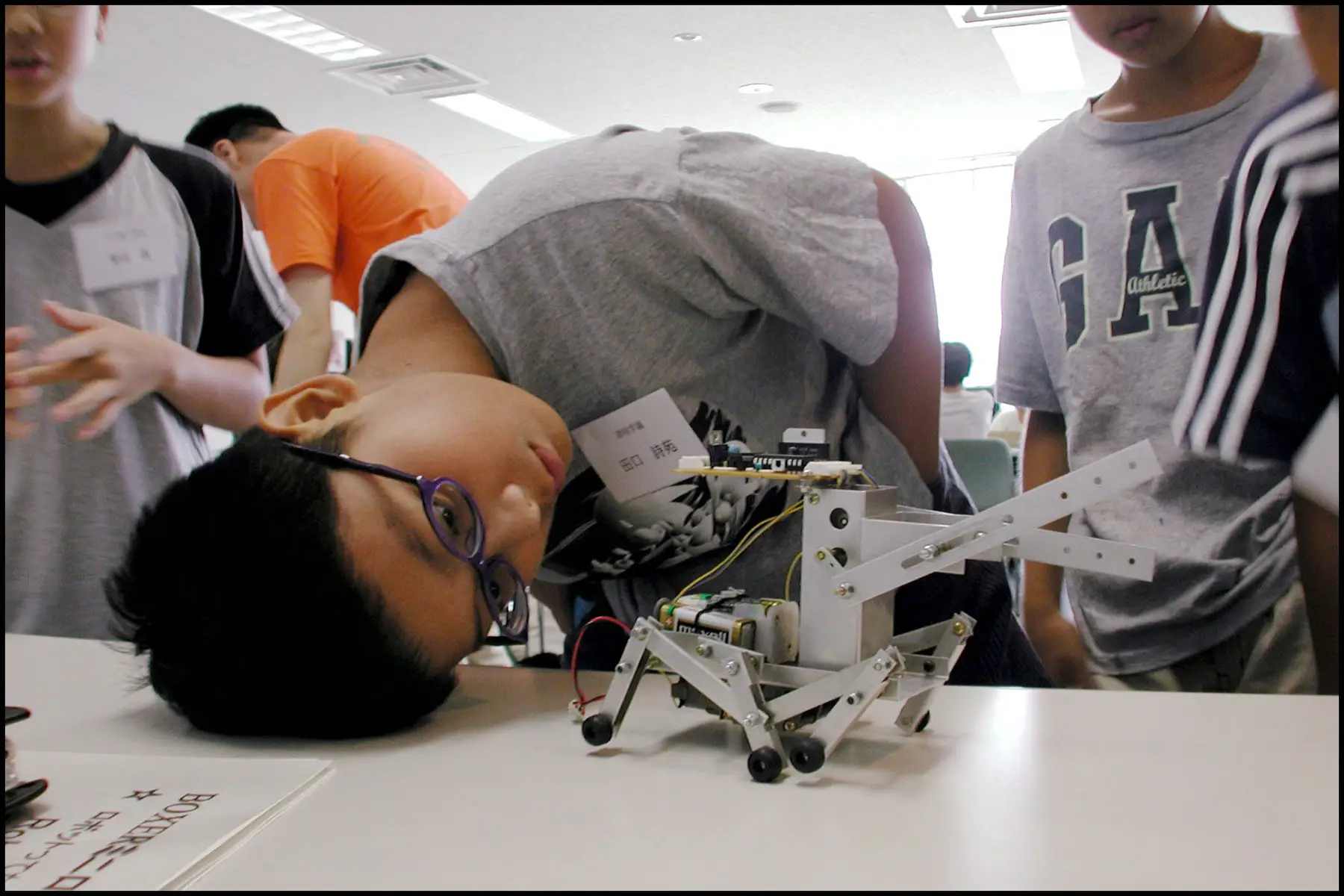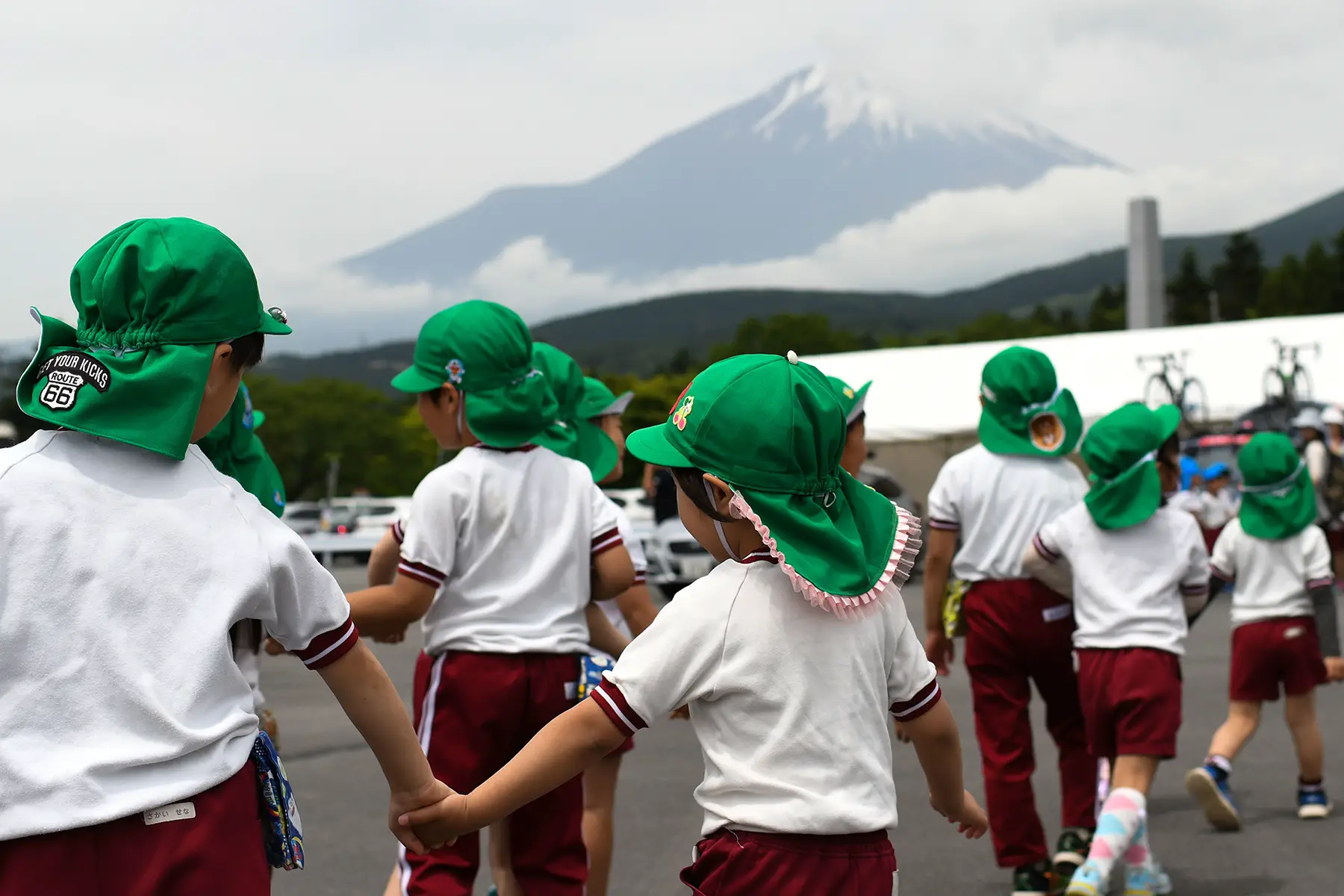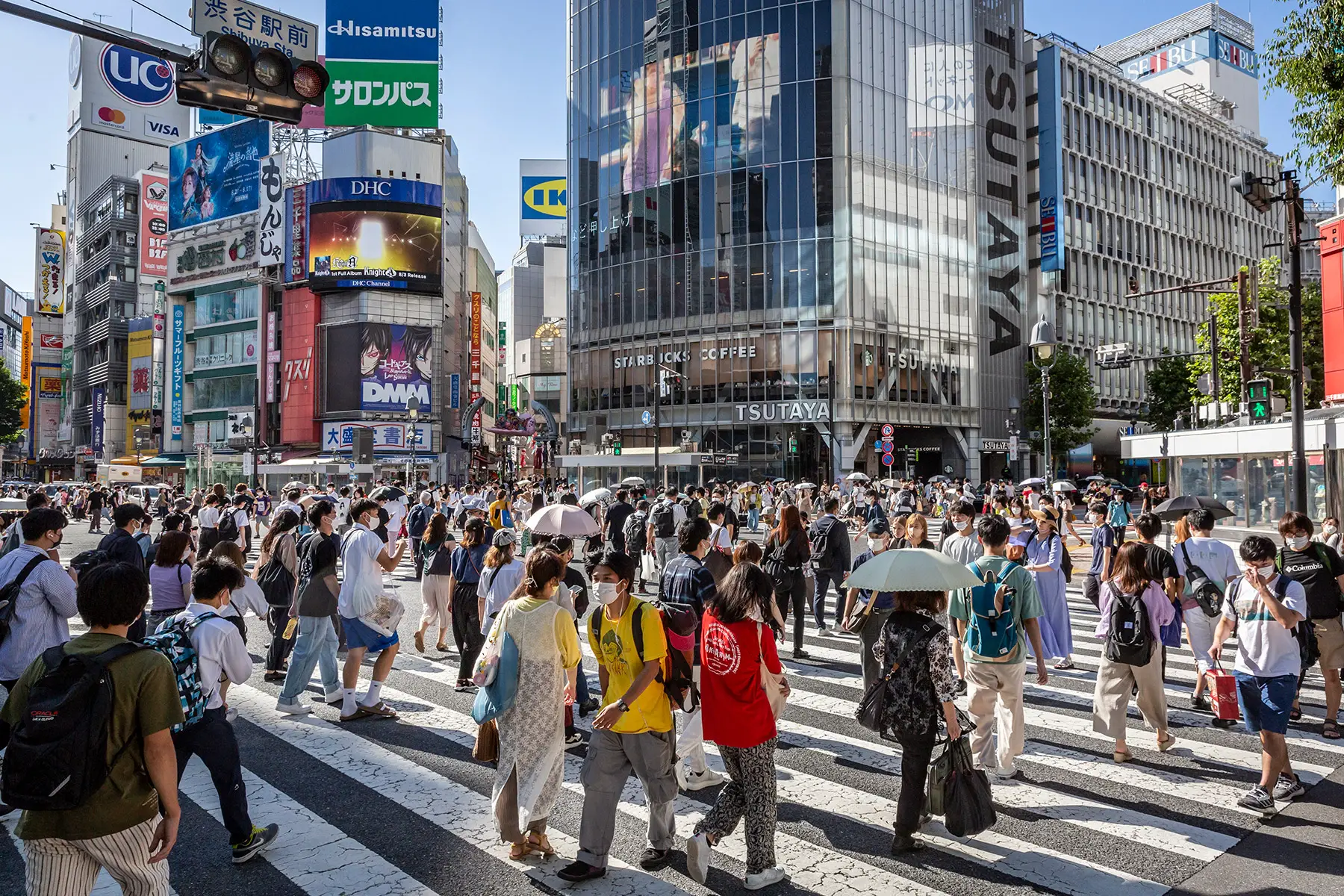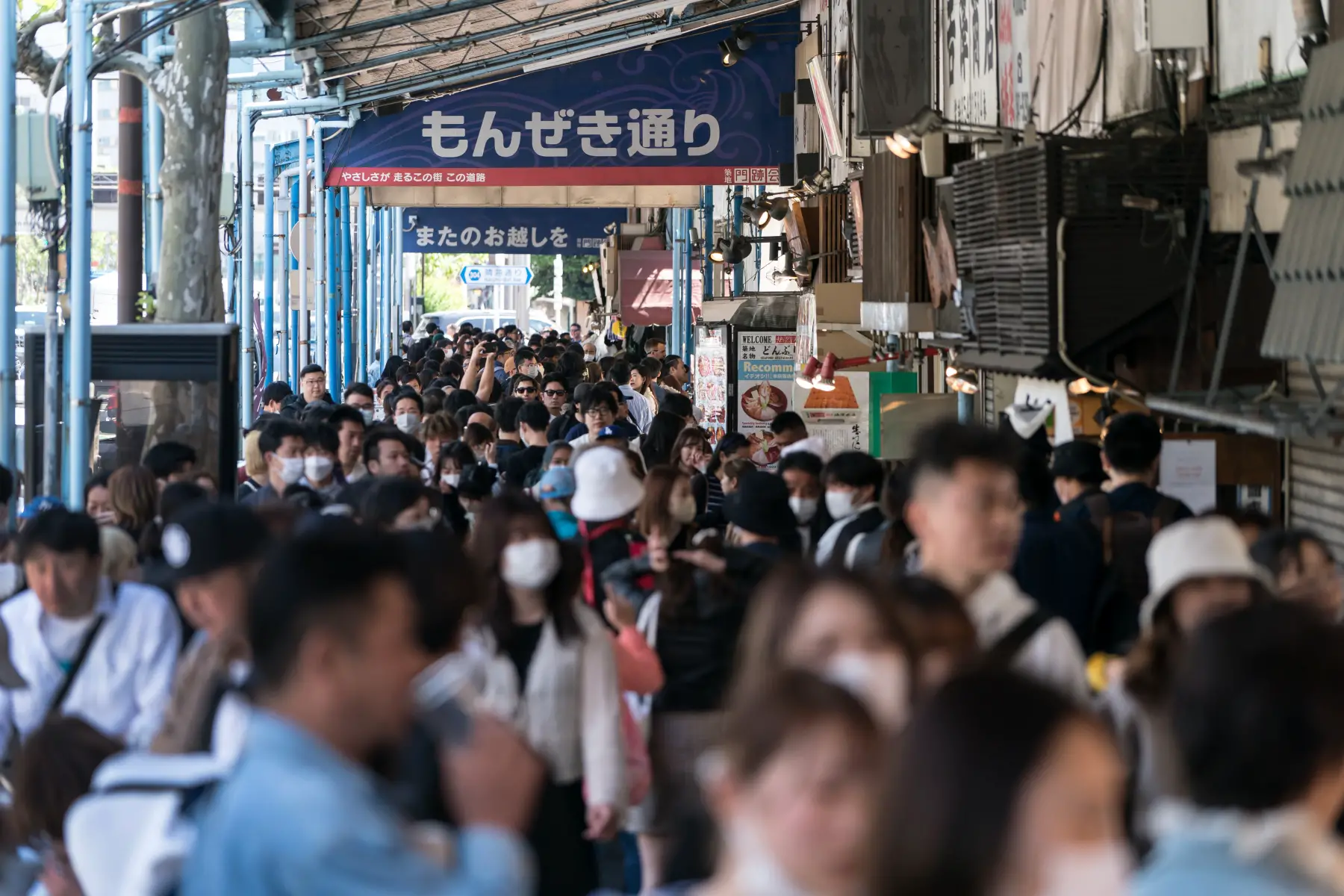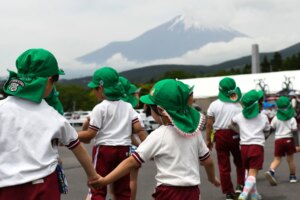Childcare (育児) is an important consideration for parents (親) all around the world, and Japan is no exception. However, the country is unique in that it has a rapidly aging population and low birth rate, which has led to concerns about whether it can continue to function as a society. As a result, the government is introducing policies to support parents, including making childcare more affordable and accessible.
For more information on the different options available in terms of childcare in Japan, read about the following:
- Childcare in Japan
- Who can access childcare in Japan?
- Preschool and daycare in Japan
- Professional childminders in Japan
- Community childcare schemes
- Before- and after-school clubs
- Childcare in Japan during school holidays
- How to find childcare in Japan
- Childcare costs in Japan
- Child support in Japan: allowances and benefits
- Children’s healthcare in Japan
- Becoming a childcarer in Japan
- Useful resources
Childcare in Japan
Childcare in Japan is a crucial issue for many families, as more and more parents seek help balancing work and family life. Fortunately, the Japanese government has implemented a range of policies to support those with little ones.
This includes establishing a system of publicly funded daycare centers (公立保育所), nursery schools (公立保育園), and other forms of childcare, as well as providing more financial help to those who need it most.
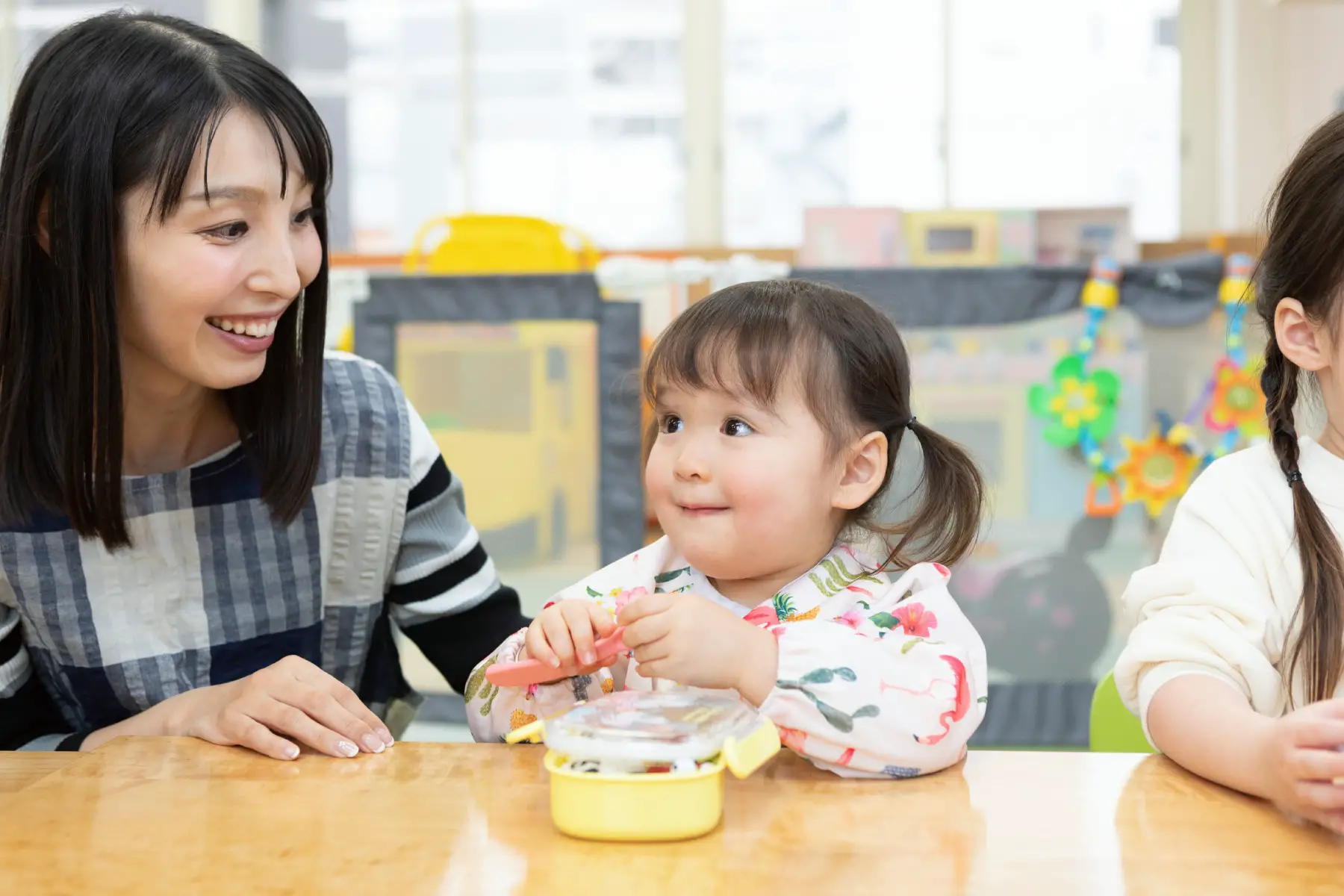
Moreover, an increasing number of businesses are providing community-based childcare services to provide support for working parents. This has enabled more women to remain in the workforce, as they no longer face the same challenges when it comes to balancing work and family responsibilities.
Flexible working arrangements are also becoming increasingly common across the country, particularly in larger companies, with the government introducing new policies to encourage this.
The Ministry of Health, Labour and Welfare (厚生労働省) regulates childcare services in Japan. The government sets standards for childcare facilities and provides subsidies to help cover the costs of running these services. Private and voluntary organizations also play a significant role in providing childcare in Japan.
Japan has a system of parental leave (育児休暇) whereby mothers can access up to 14 weeks of maternity leave (産休) and fathers are entitled to 12 weeks. Parents can also take up to one year of childcare leave after their child is born.
Who can access childcare in Japan?
Access to childcare services in Japan is generally available to both Japanese nationals and foreign residents. However, there may be some restrictions when it comes to eligibility for certain programs based on immigration or residency status.
In order to enroll a child in a public daycare center or nursery school, parents must provide proof of residency. Some facilities may also require additional documentation, such as a health certificate or proof of employment.
Fortunately for expats, there are no specific requirements when it comes to accessing childcare services in Japan. However, it is important to be aware that there may be language barriers or cultural differences to consider.
If you cannot access regular childcare provisions in Japan, there are a number of alternative options available. For instance, you might want to consider hiring a nanny (乳母) or au pair (オペア), enrolling your child in an after-school program or club, or searching for community-based childcare initiatives in your area.
Some employers may also offer support for working parents, such as on-site daycare facilities or subsidies for childcare expenses.
Preschool and daycare in Japan
There are various types of preschool (幼稚園) and daycare options in Japan, and understanding what each one offers can feel overwhelming for newly arrived parents seeking the best option for their child.

However, the first thing parents will need to decide is whether to send their child to hoikuen (保育園 – daycares or nurseries) or yochien (幼稚園 – kindergartens or preschools). The main difference between the two is that hoikuen provide general childcare for children whereas youchien focus more on education-based topics and activities. Below is an overview of each option.
Hoikuen (daycare or nursery)
Hoikuen generally cater to zero to five-year-olds and are designed to care for the children of working parents. As a result, their operating hours are usually longer to fit standard working schedules. There are three types of hoikuen to choose from, depending on your needs:
- Ninka (認可保育園): These are public daycares that are very affordable and, therefore, in high demand with limited spaces. Because of this, applying to them involves a point system that gives priority to families that most need daycare, such as single parents and those who are both working. Fees are also based on income and decrease each year as the child ages. You can apply through your local ward office.
- Ninsho (認証保育園): These are privately owned daycares and are, therefore, more expensive than public daycares. However, because they are recognized by the government and have to follow the standards set by the ward, parents may be eligible for government subsidies to help offset the costs. They are designed for full-time working parents, with different courses available depending on the hours of care required. You can apply directly with the facility.
- Muninka (無認可保育園): These are privately owned and operated and, therefore, do not need to meet government regulations, which means that standards can vary. Therefore, it is important to carefully research them before applying. Because parents don’t need to be working full-time to secure a place, it is also easier to get one. That said, fees are generally higher than ninka or ninsho daycares and not eligible for a government subsidy. You can apply directly with the facility.
Yochien (kindergarten or preschool)
Unlike hoikuen, yochien accept children aged three to five, regardless of whether their parents are working or not. As a result, they have shorter hours and typically follow the Japanese school year, which runs from April to March.
Yochien are under the jurisdiction of the Ministry of Education, Culture, Sports, Science and Technology (MEXT) (文部科学省), and are designed to prepare children for primary school (小学校). Therefore, those attending need to wear a uniform and follow a set curriculum with lessons designed to teach them essential everyday skills. Youchien generally offer children a mixture of sports, craft, academics, and play. Similar to schools, some also provide lunch.
Due to government subsidies, the cost to enroll your child at youchien is fairly affordable, although you will typically need to pay an application fee.
International schools and daycares
Many international schools in Japan provide preschool and kindergarten classes for children as young as 18 months up to six years, which is when they begin primary school. These offer a wide variety of programs to help nurture their abilities and interests in a predominantly English-speaking environment. That said, there are also those that teach in other languages and follow curriculums from other countries.
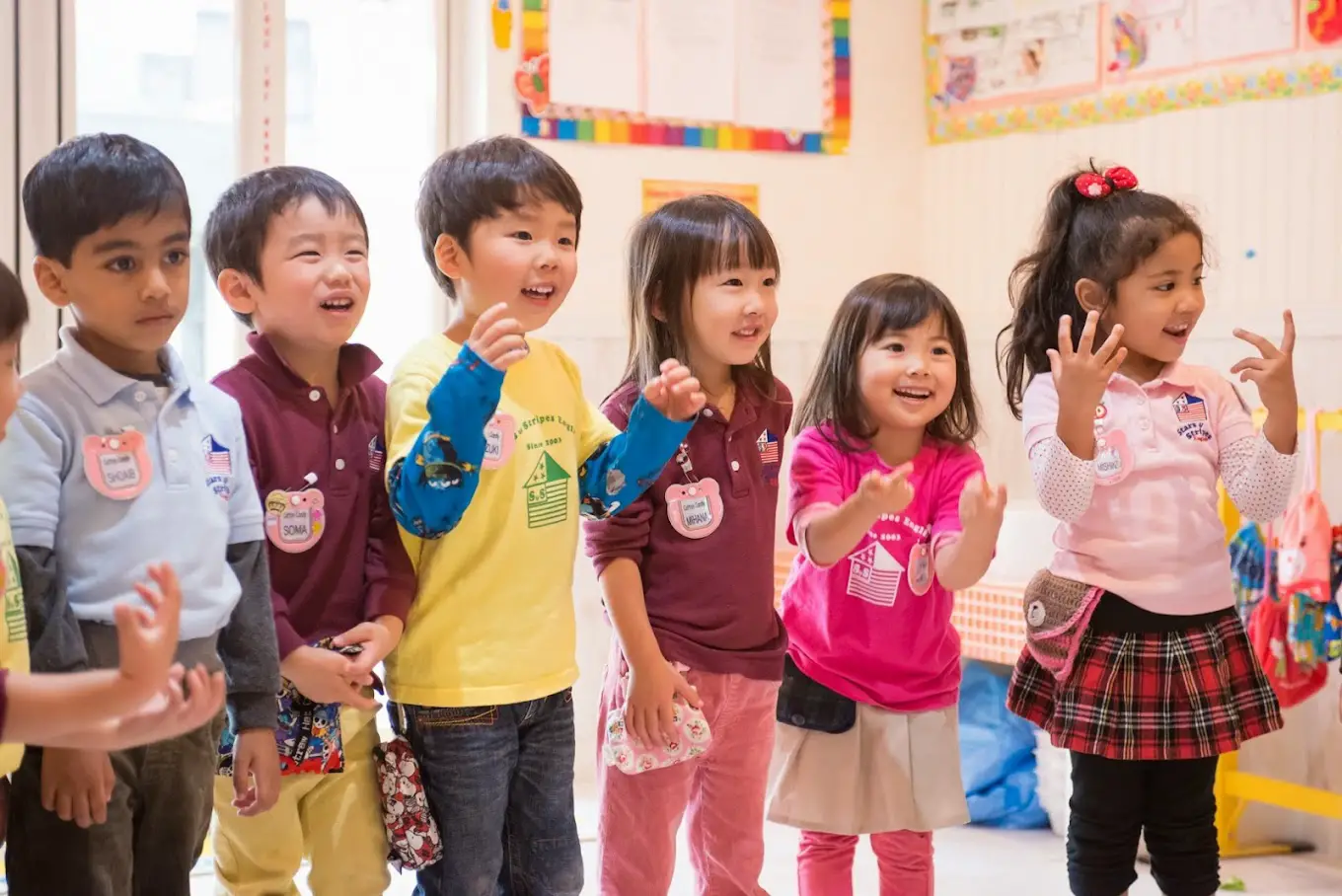
International schools often consist of a multicultural mix of students and staff. This can also be an advantage for families who want their children to value diversity and gain exposure to other cultures.
Aside from international schools, there are numerous private international daycares and preschools that provide a range of programs that enable children to learn and develop in an English environment.
Here are just a few examples:
- Aloha Kids: Provides a fully immersive English environment in which children from as young as one year and eight months can enjoy a mix of music, art, and sports
- Kids Duo International: A bilingual kindergarten with a fully tailored curriculum of English, Japanese, and Physical Education for children aged three to 12
- Stars & Stripes: Exposes children to music, art, dance, and a variety of other cognitive programs that make the children want to speak English, with classes taught by native and bilingual teachers
- Tokyo International Preschool: Professional native English teachers encourage children to learn, sing, play, and dance in an all-English environment
Some private international daycares combine English with a second language such as Japanese, French, or Chinese which might be worth exploring, depending on your preferences.
Nannies and babysitters
Other than schools and daycares, there are many nanny and babysitting services that cater to English-speaking families in Japan. These can provide flexible and personalized care for children in the home which may be a good option for families with irregular work schedules or specific care needs.
Using international childcare services in Japan can also provide a number of advantages. This includes giving them exposure to other languages and cultures, a more diverse group of children for socialization, and allowing them to access educational programs and resources that are not available in traditional Japanese preschools or daycares. However, it is important to note that these services may come at a higher cost and may not be available in all areas of the country.
Playgroups
Playgroups (プレイグループ) are another informal childcare option in Japan. They offer a chance for children to play and socialize with other children in a safe and supervised environment. Parents or community groups usually organize these and hold them in community learning centers (公民館), parks, or other public spaces.
You can find playgroups in your area by searching online directories, checking with your local community center (コミュニティセンター), or asking other parents in local parent groups on social media.
Professional childminders in Japan
Childminders
Although the concept of childminders (チャイルドマインダー) is not as common in Japan as in some other countries such as the UK or the US, there are still around 7,000 in Japan who are registered with the National Childminding Association (NCMA) (日本チャイルドマインダー協会). All of them have received training from NCMA UK and are specialized in childminding.
Legally, registered childminders can only care for one to four children (depending on their age) in a home setting. Because of this, the children have plenty of individual attention which can be reassuring for parents.

To find a childminding service in your area, you can refer to an agency such as Sunnyday Smiring, which charges ¥2,000 per hour and offers the choice to either bring your child to a carer’s home or have them pick up your child from your home. Alternatively, you can ask for recommendations from local expat groups on social media.
However, because childminders are not as abundant in Japan as they are in some other countries, you might have more luck looking for a local babysitting service, which is far more common.
Babysitters
There are various options for finding a babysitter (子守) in Japan. This includes finding a private babysitter, hiring one through an agency, or using an online matching service. Babysitters are usually responsible for taking care of children on an occasional basis; such as for date nights or when parents need to attend events. However, some may be happy to work longer hours if needed.
Rates for babysitters can vary, with some charging by the hour and others charging a flat rate for a set amount of time. However, on average, you can expect to pay around ¥1,500 to ¥2,000 per hour.
Babysitting agencies
Some of the biggest agencies that provide registered babysitters who speak English include:
- Babysitters: The agency has around 30 babysitters who are native or bilingual English speakers, starting from ¥2,750 per hour. It offers various services including pick-up and drop-off, sick child care, tutoring, and online meetings.
- CareFinder: Provides vetted and trained babysitters across nine cities in Japan. They are available on an hourly basis, starting from ¥1,500 per hour. You can also search for carers that speak different languages such as English, Japanese, French, German, and Chinese.
- Chez Vous: Provides various babysitting services starting from ¥3,200 per hour, including childcare and housework before and after childbirth or on an ongoing basis, hotel babysitting, and more
- Honey Clover: Offers five different services including childcare at night, transportation to and from kindergarten, housework, and more, starting from around ¥2,000 per hour
- Poppins Sitter: Provides several services such as childcare at home, pick-up and drop-off from nursery or kindergarten, overnight childcare, and help with household chores, from ¥2,200 per hour
If you are using a babysitting service in Japan, you won’t be eligible for childcare benefits (育児手当), as they are considered to be independent contractors. That said, some employers may offer you childcare support as part of their employee benefits package, so it’s always worth checking.
Nannies
In Japan, nannies (乳母) provide personalized care for children in the home setting. They may be responsible for a wide range of tasks, including preparing meals, helping with homework, and engaging in play and other activities with the child. You can find nannies through word-of-mouth referrals, nanny agencies, or online platforms such as Poppins, Little Hug, or CareFinder.
There are currently no specific regulations or requirements for nannies in Japan. Therefore, families are encouraged to hire individuals who have relevant experience and qualifications in childcare. This may include those who have completed training programs or courses in early childhood education, or those who have previous experience working with children.

The cost of nanny services in Japan can vary depending on the experience and qualifications of the nanny, as well as the number of hours they work per week. However, on average, families can expect to pay around ¥200,000–300,000 per month for full-time nanny services. There are also childcare benefits available to families who meet certain criteria.
Au pairs
Au pairs are a popular option for families looking for flexible and affordable childcare in Japan. They provide in-home childcare services, which may include tasks such as preparing meals, helping with homework, and engaging in play and other activities with the child. Unlike nannies, however, au pairs are typically foreign nationals who are seeking to gain cultural experience while providing childcare services.
Families can find au pairs through online platforms such as AuPairWorld or through au pair agencies. Of course, it is important to carefully screen and vet potential candidates before hiring one, as they will be living in the family’s home and providing care for the children.
In order to hire an au pair in Japan, families must ensure that the candidate meets the requirements for the working holiday visa. This includes being between the ages of 18 and 30, holding a passport from a designated country, and having sufficient funds to support themselves during their stay in Japan. Families must also provide the necessary documentation and support for the au pair’s visa application.
The cost of hiring an au pair in Japan can vary depending on a number of factors, including their level of experience and qualifications, the number of hours they work per week, and any additional expenses such as travel or language lessons.
However, on average, families can expect to pay between ¥50,000 and ¥100,000 per month. Again, it is worth noting that hiring an au pair does not come with any childcare benefits as they are not considered to be a formal childcare provider.
Community childcare schemes
Aside from the options already mentioned, there are several community childcare schemes in Japan that operate across the country. These often provide support for parents who cannot access regular childcare provisions or who require more flexible childcare arrangements.
That said, the nature and availability of these schemes can vary depending on the region or neighborhood you live in. Therefore, it is best to check with your local community center (kominkan) to see what they offer.
Community center childcare services
Many kominkan offer various activities, classes, and support services for residents, including childcare services. Parents can drop their children off at the center while they go to work or attend to other tasks.
In some areas, local communities or groups of parents have also set up their own nurseries to provide affordable and flexible childcare options. These are often run by volunteers or parents and may be located in community centers or other local facilities. Therefore, it is worth checking with your nearest kominkan to see if there is one in your area.
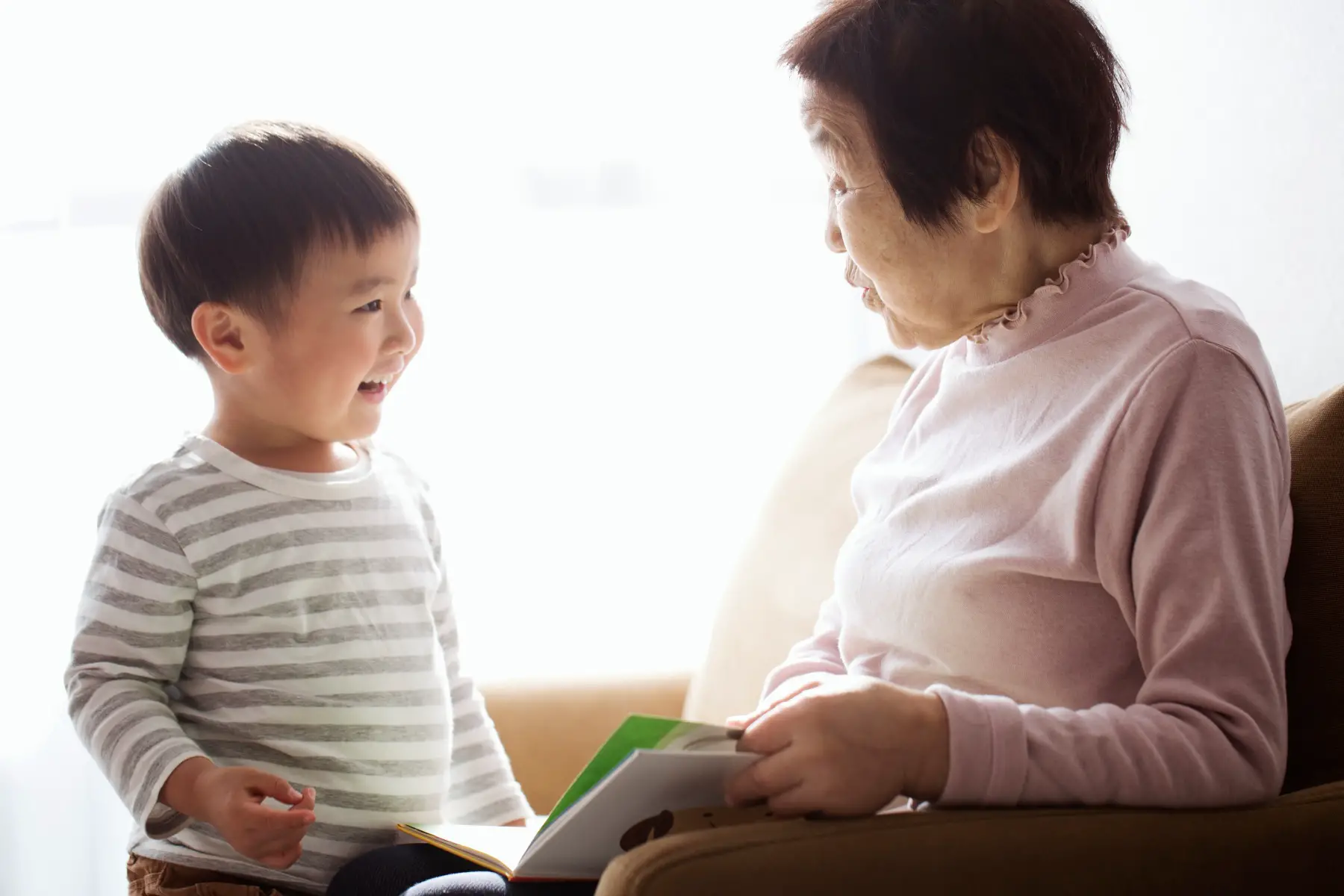
Interestingly, time banking is a community-based initiative where members trade services or skills with each other, including childcare. For instance, a parent who needs childcare may offer to cook for another member of the community in exchange for them looking after their child.
Aside from this, the Family Support Center (ファミリー・サポート・センター) is a voluntary organization set up by the Ministry of Health, Labour, and Welfare, which allows you to hire babysitters from around ¥700 per hour, including pick-up and drop-off at childcare. Meanwhile, the Silver Human Resource Centers acts as a public employment agency for retirees over 60 years old and provides affordable babysitting services for around ¥1,000 per hour.
Before- and after-school clubs
Before- and after-school clubs are available for school-age children in Japan. These are commonly known as gakudo (学童) or “study clubs” and cater to children between the ages of six and twelve years old. They typically run from 07:00 to 08:30, and from 15:00 to 18:00, and are available on school days only.
These clubs are run by schools or third-party providers and may offer activities such as homework assistance, educational games, and arts and crafts. Meals are generally not provided, however, children may bring their own snacks.
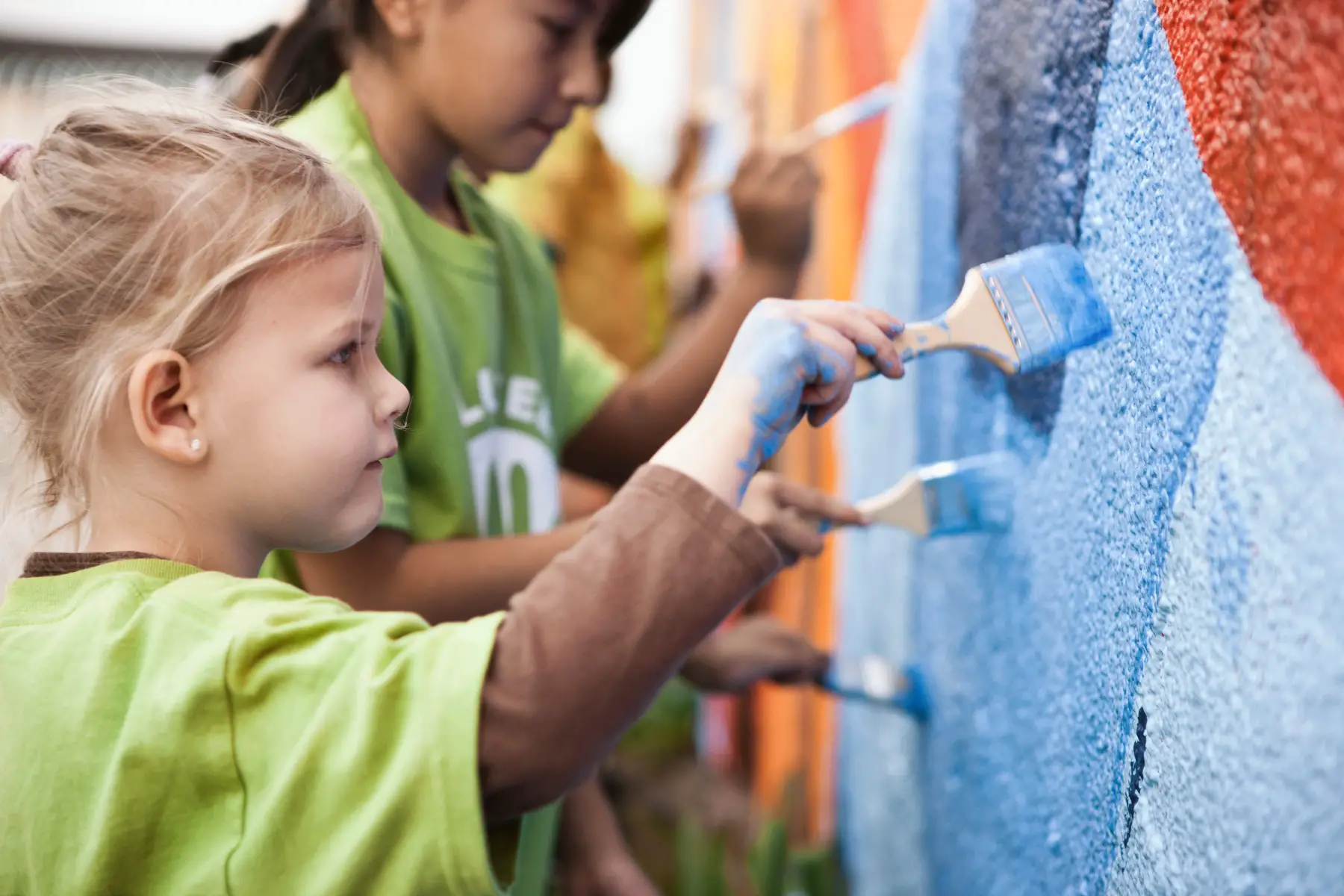
It is important to note that access to before- and after-school clubs may depend on the school district and the availability of spaces. Therefore, parents should contact their child’s school for more information on how to enroll them in one.
The costs of these clubs vary depending on the provider, however, they generally range from around ¥10,000 to ¥30,000 per month. Childcare benefits may be available to eligible families, but coverage and eligibility requirements may vary depending on the specific benefit program.
Childcare in Japan during school holidays
There are various options available for childcare during school holidays in Japan, including holiday camps, summer camps, and daycare centers. These programs often offer activities such as sports, crafts, and cultural experiences to keep children entertained and engaged.
It is worth noting that some international schools across the country also host summer camp programs, some of which focus on a specific topic such as coding, robotics, or animation, or offer STEM (science, technology, engineering, and mathematics) classes. Therefore, it is worth checking with the schools in your area to see what they offer during the holidays.
Naturally, the costs of these programs vary depending on the length of the program, the activities offered, and the location. Therefore, it is recommended to check with individual providers or consult a directory of holiday activity providers for more information on pricing. Again, childcare benefits may be applicable for some families, depending on their individual circumstances.
How to find childcare in Japan
One of the best ways to find childcare in your area is to check your local government website to see what is available. You can also ask for information at your nearest community center or ask for recommendations from parents in local social media groups. After all, first-hand experience is extremely valuable, and gaining some objective insight could help you make a more informed decision.
Of course, when searching for a suitable childcare service, it is important to thoroughly research all the options. This includes checking the reputation and accreditation of the facility, the qualifications of the caregivers, the hours of operation, and the fees. It is also strongly advised to visit the facility in person to get a feel for the environment and ask any questions before you commit to anything.
However, just keep in mind that the demand for childcare services in Japan is extremely high which means that waiting lists for popular facilities can be long. Therefore, it is recommended to begin the search for childcare services as early as possible, even before the child is born, and ensure that you are on the list to secure a place.
Childcare costs in Japan
As mentioned, the cost of childcare in Japan can vary depending on the type of care you choose and the location. However, on average, public daycare centers can cost anywhere between ¥40,000 and ¥150,000 per month. Private kindergartens, on the other hand, can cost between ¥60,000 and ¥100,000.
Meanwhile, you can expect to pay around ¥1,500 to ¥2,000 per hour for a babysitter, between ¥50,000 and ¥100,000 per month for an au pair, and around ¥200,000 to ¥300,000 per month for full-time nanny services.
Whichever option you choose, it is important to be aware that childcare costs in Japan are often higher in urban areas such as Tokyo (東京) and Osaka (大阪). In fact, childcare costs in Japan are generally higher than in other countries which is something to bear in mind. Moreover, some services may offer additional things such as meals and trips which may increase the cost. That said, the quality of care provided is usually very high, which can help make the expense a little easier to swallow.
Child support in Japan: allowances and benefits
There are various forms of child support available for families in Japan. However, the government is currently making some major changes to the county’s Child Rearing Allowance (児童扶養手当) in an attempt to tackle Japan’s rapidly declining birthrate and provide more financial support for parents.
For instance, in March 2023, it pledged to remove the income limit for child allowance, enabling households to receive a monthly allowance of ¥10,000 or ¥15,000 per child until they graduate from high school. There are also plans to provide a ¥30,000 monthly child allowance to low-income families, and a separate ¥50,000 per child to low-income single and married parents.
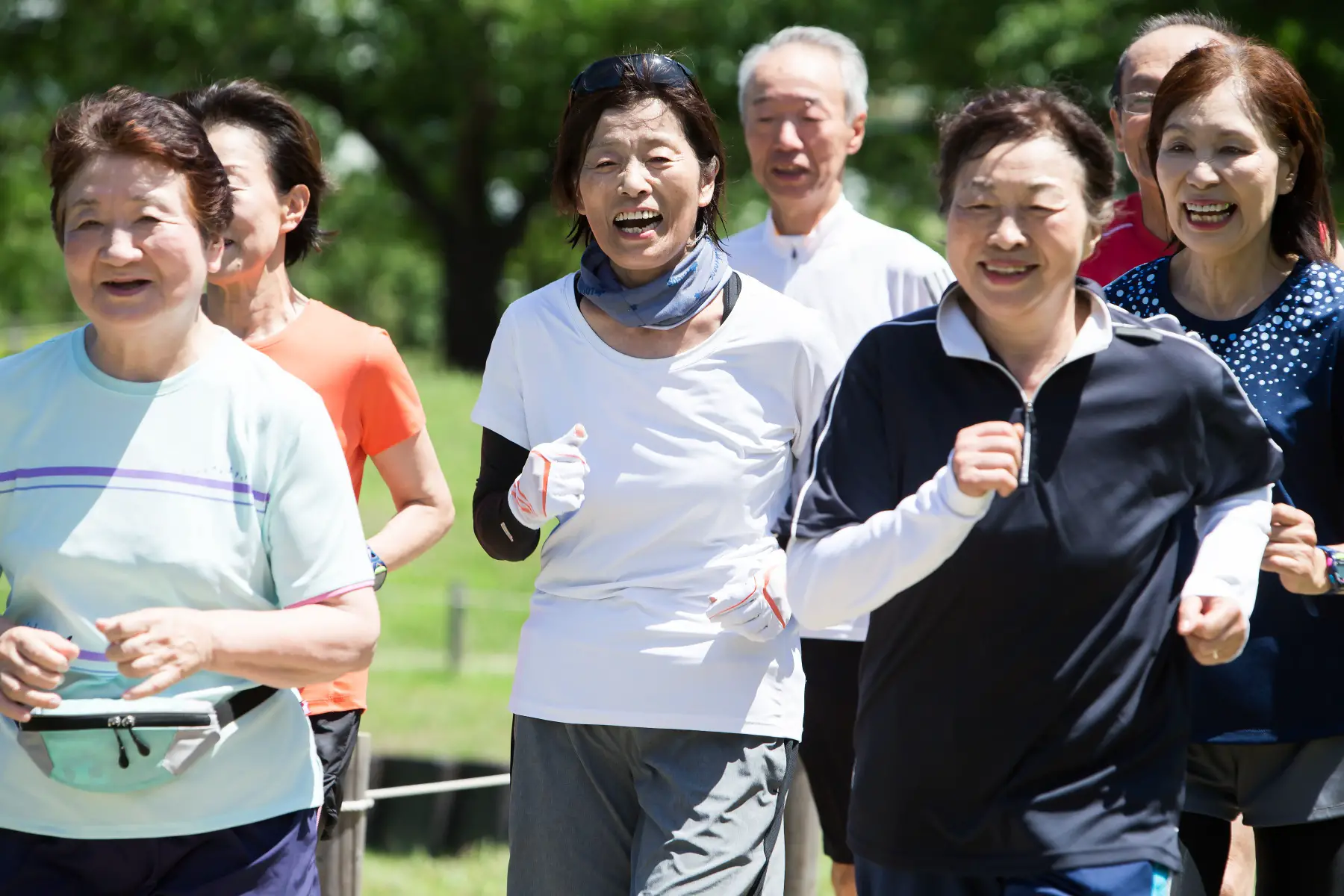
In addition to this, the government is considering covering childbirth expenses through the country’s universal health insurance system, making school lunches free at public primary and junior high schools, and raising childcare leave payments to enable more men to concentrate on parenting.
Aside from these reforms, there are various support systems available for families with children with disabilities or developmental disorders. For instance, the Special Child Care Allowance (特別児童扶養手当) provides financial assistance to families with children who require extra support due to disabilities or chronic illnesses.
Meanwhile, the Inclusive Childcare Support Program is available to support children with developmental disorders and disabilities in attending mainstream childcare facilities.
Essentially, it is best to check with your local government office to see what kind of support may be available in your area. You might also want to explore what tax deductions are available for childcare expenses incurred while you are working.
Children’s healthcare in Japan
In Japan, children are eligible for national health insurance (NHI) (国民健康保険) coverage until they reach the age of 18. Parents or guardians must apply for a health insurance card, which is necessary for accessing medical services and prescriptions in Japan.
The national health insurance system covers 70% of medical expenses, with the remaining 30% covered by the patient. That said, some medical facilities may require payment upfront which means you will need to seek a reimbursement from your insurance provider later on.
It is important to note that medical costs in Japan can be relatively high. Therefore, it is advisable to take out additional health insurance if possible. Fortunately, there are several health insurance companies that offer international coverage in Japan, including:
Becoming a childcarer in Japan
There are various different paths you can take to become a childcarer in Japan, depending on your specific goals. For instance, to set up a hoikuen, you will need to follow specific guidelines and regulations established by the government. The basic steps involve obtaining the necessary certifications, securing a location, hiring employees, setting up a curriculum, and advertising your new business.
However, to work as a childminder in Japan, you will need to get certified to work, find a job, and then provide quality care. Of course, you will need to cater to the needs of the child and agree on a schedule and structure of care with your employer.
If you want to reach a higher level of professionalism, and be able to charge more for your services, it is a good idea to obtain a childcare license (子育て支援員) from the municipality. This is slightly easier to get than a hoikushi license (保育士資格), which is granted by the government.
Useful resources
- Better Humans – an article about hiring a babysitter for the first time in Japan
- Ministry of Health, Labour and Welfare – the government website which provides information about childcare in Japan
